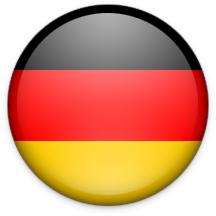Where will Liberty Global strike next: Germany or the Netherlands?
Wednesday 2 February 2011 | 09:02 CET | Author: Tim PoulusAccording to market rumors, Kabel Deutschland (KDG) and Liberty Global are bidding for Kabel Baden-Wuerttemberg (KBW). EQT, the private equity investment vehicle of the Swedish Wallenberg family, would not only be open to an IPO, but also consider a sale. For KDG as well as Liberty, which already owns Unitymedia, this acquisition could strengthen their market positions considerably, but also private quity parties would be interested. The next bidding round would be on February 16 and the owners are reportedly looking for EUR 2.5 to 3.0 billion. In addition, Numericable (owned by Carlyle, Cinven and Altice) have put its Belgian and Luxembourg operations on sale. Again, Liberty Global (which owns the majority of Telenet) can be classified as a potential buyer. The price tag will be modest, as it is about just over 100,000 subscribers. Also Ziggo, owned by Cinven and Warburg Pincus, is expected this year to see an ownership change through an IPO or a sale. In the latter case, Liberty Global is a candidate again. For CIF, also preying on Dutch cable companies, Ziggo is a size too big and other candidates are not immediately obvious.
Looking at the Q3 results, we see in Ziggo and KBW quite similar companies. Docsis was rolled out across virtually the entire footprint and growth is high. KBW experienced over the first nine months of 2010 revenue growth of 12.5 percent, EBITDA rose by 22.3 percent and the margin was 56.5%. Ziggo showed a lower growth (turnover +7.2%, EBITDA +13.1%), but the margin was slightly higher (57.6%). KBW nine month revenues totalled EUR 409 million, compared with EUR 950 million for Ziggo. As a result, the revenue per customer for Ziggo (EUR 308 in nine months), is a lot higher than for KBW (EUR 178).
You can conclude from this that Ziggo is a little further ahead in its evolution, witnessed by lower growth and higher revenue per customer. And so, Ziggo may be a little more expensive than KBW. In terms of multiples, an acquisition price of 3 billion euros for KBW implies a value of EUR 1,300 per customer. If we assume 2,000 per customer Ziggo, then Ziggo would be worth 6.2 billion euros. KBW is heading for a 2010 EBITDA of around EUR 310 million, so the price is 9.7 times EBITDA. Applying this multiple to Ziggo, then the company would be worth around EUR 7.6 billion.
It will be a matter of timing and pricing where Liberty Global will strike first: in Germany (KBW), Belgium (Numericable) or the Netherlands (Ziggo). If one is willing to pay EUR 7 billion, and taking over Ziggo's net debt (EUR 3.4 billion), then this leaves EUR 3.6 billion for the holding company of Ziggo. The ultimate owners (Cinven and Warburg Pincus) have an outstanding shareholder loan of EUR 2 billion euro (see our Research Brief 'Ziggo IPO could target a EUR 7.3 billion valuation'), so they would have cash to distribute of EUR 1.6 billion, where they have invested cash worth just over EUR 200 million.
For Liberty Global, there are obviously limits to borrowing. As of September 30, the ratio of net debt to EBITDA was 4.1, while EBITDA for 2011 will be USD 4.5 billion, according to market estimates. Liberty has to maintain the ratio in the range between 4 and 5, so there is scope for EUR 0.9 times EBITDA to add to debt, or more than USD 4 billion. In short, KBW and Ziggo are financially within reach of Liberty - but not both. It is now up to company CEO Mike Fries to give priority to strengthening Liberty Global's position in either Germany or the Netherlands.
Source: telecompaper.com
(http://bit.ly/fNp4Py)





